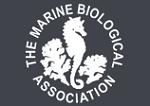APHOTOMARINE
An educational resource dedicated mainly to the photography
and diversity of marine life that can be found in coastal waters
and intertidal areas of Great Britain and Ireland by David Fenwick.

Cliona sp.
- in rock crevice 1
Yellow Boring Sponge
Cliona sp.
- in rock crevice 2
Yellow Boring Sponge
Cliona sp.
- close-up 1
Yellow Boring Sponge
Cliona sp.
- spicules 1
Yellow Boring Sponge
Cliona sp.
- spicules 2
Specimen found growing on rock on the lowershore at Ceres Rock, Gwithian, near Hayle, Cornwall. 10.03.16.
Yellow Boring Sponge
Cliona sp.
- hole with sponge 1
Yellow Boring Sponge
Cliona sp.
- hole with sponge 2
Yellow Boring Sponge
Cliona sp.
- holes with sponge 1
Yellow Boring Sponge
Cliona sp.
- holes with sponge 2
Yellow Boring Sponge
Cliona sp.
- holes bored by sponge 1
Yellow Boring Sponge
Cliona sp.
- holes bored by sponge 2
Yellow Boring Sponge
Cliona sp.
- sponge filled galleries within shell valve 1
Yellow Boring Sponge
Cliona sp.
- sponge filled galleries within shell valve 2
Yellow Boring Sponge
Cliona sp.
- habitat / location 1
Numerous old shell valves of Great Scallops, Pecten maximus were found in a shallow lowershore pool that were being or had been bored by Cliona. Below outer wall of North Pier, Newlyn Harbour, Newlyn, Cornwall, 20.06.20.
Yellow Boring Sponge
Cliona sp.
- in old Winkle shell 1
Yellow Boring Sponge
Cliona sp.
- in old Winkle shell 2
Specimen above found growing in a shell found in a rockpool on the lowershore at Chimney Rocks, Penzance, Cornwall. 30.04.18.
Yellow Boring Sponge
Cliona sp.
- on marina pontoon 1
Yellow Boring Sponge
Cliona sp.
- on marina pontoon 2
Yellow Boring Sponge
Cliona sp.
- on marina pontoon 3
Yellow Boring Sponge
Cliona sp.
- close-up 2
Yellow Boring Sponge
Cliona sp.
- close-up 3
Yellow Boring Sponge
Cliona sp.
- close-up 4
Yellow Boring Sponge
Cliona sp.
- sponge front side 1
Yellow Boring Sponge
Cliona sp.
- sponge reverse side 1
Yellow Boring Sponge
Cliona sp.
- spicules 3
Yellow Boring Sponge
Cliona sp.
- spicules 0.1mm division rule 1
Yellow Boring Sponge
Cliona sp.
- spicules 0.1mm division rule 2
Specimen found on a pontoon at Mylor Marina, Mylor Churchtown, near Penryn, Cornwall. 12.10.15.
Yellow Boring Sponge
Cliona sp.
- underwater / on oyster valve 1
Yellow Boring Sponge
Cliona sp.
- underwater / on oyster valve 2
Yellow Boring Sponge
Cliona sp.
- underwater / on oyster valve 3
Yellow Boring Sponge
Cliona sp.
- underwater / on oyster valve 4
Yellow Boring Sponge
Cliona sp.
- on old oyster valve 1
Yellow Boring Sponge
Cliona sp.
- on old oyster valve 2
Yellow Boring Sponge
Cliona sp.
- damage on scallop shell 1
Yellow Boring Sponge
Cliona sp.
- damage on scallop shell 2
Yellow Boring Sponge
Cliona sp.
- damage on scallop shell 3
Yellow Boring Sponge
Cliona sp.
- damage on oyster shell 1
Images of damaged shell valves taken at Crinnis Beach, Carlyon Bay, near St. Austell, Cornwall; on various dates. Images of sponge taken near Mylor Marina, near Falmouth, Cornwall. 05.03.14.
The boring form can only be reliably identified to genus only, so it should be reported as Cliona sp..
Scientific and European Names:
Cliona sp., Yellow Boring Sponge, Gelber Bohrschwamm, Boorspons, Clione jaune.
APHOTOMARINE supports open source data recording and sharing for the benefit of wildlife, recorders, research, science and education. The project recommends the following websites and works with the following bodies and organisations.
A website based on Sponges of the British Isles 1992 Edition, revised and extended, 2007, by Bernard Picton, Christine Morrow & Rob van Soest. Without a shadow of a doubt the best online resource to sponges of Britain and Ireland.
The Marine Biological Association or MBA, based in Plymouth, is one of the world’s longest-running societies dedicated to promoting research into our oceans and the life they support. Since 1884 the MBA has been providing a unified, clear, independent voice on behalf of the marine biological community.It has a growing membership in over 40 countries.
The National Biodiversity Network or NBN is a charity that supports open source data sharing and recording supporting conservation, science and education. "Why do recorders need open source?". Simply because it supports the core values of wildlife recording and the free use of records and data over a very wide network that includes partners like the Natural History Museum.
The taxonomy used here is based on that of the following database, which is also used by the MBA, NHM and the NBN.
The World Register of Marine Species or WoRMS.

